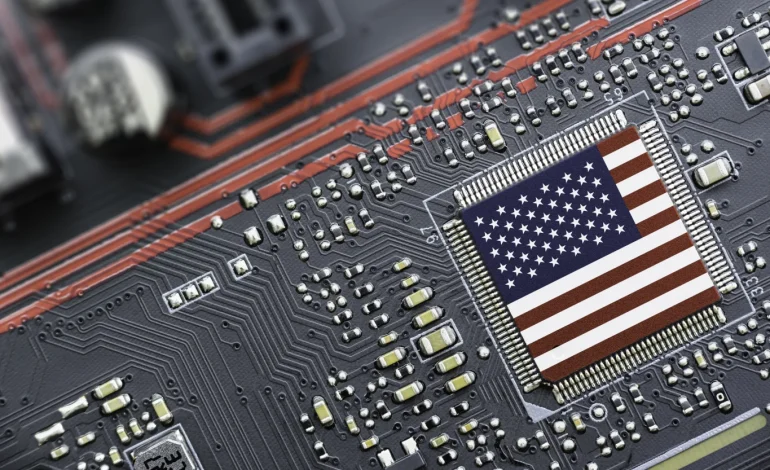The Trump administration has initiated new investigations into imports of semiconductors, chipmaking equipment, and pharmaceuticals, signaling the next phase in its broader strategy to impose tariffs aimed at boosting domestic manufacturing and protecting national security.
The US Department of Commerce published notices late Monday in the Federal Register seeking public comment within 21 days. The probes fall under Section 232 of the Trade Expansion Act of 1962, which allows tariffs to be implemented on national security grounds.
Although President Donald Trump paused some of his broader tariff hikes for 90 days last week — excluding Chinese imports — he has indicated a clear intent to pursue tariffs on select sectors, particularly semiconductors, pharmaceuticals, copper, and lumber.
Commerce Secretary Howard Lutnick emphasized in an interview that these sector-specific tariffs are intended to reshore critical production and are “not available for negotiation.”
“We need to make medicine in this country,” Lutnick said. “We need to make semiconductors.”
The chip investigation will assess the feasibility of increasing domestic production and evaluate vulnerabilities in the supply chain, including reliance on foreign manufacturing and the impact of foreign subsidies. The probe also encompasses chip components, manufacturing equipment, and consumer products containing semiconductors such as smartphones, vehicles, and home appliances.
Similarly, the pharmaceutical investigation includes both finished drugs and their active ingredients. Currently, over 70% of these materials are imported, with key suppliers being India, the European Union, and China.
The pharmaceutical industry has expressed concern that tariffs could exacerbate existing challenges in the drug supply chain. John Murphy III, CEO of the Association for Accessible Medicines, warned that tariffs “will only amplify the problems that already exist in the US market for affordable medicines.”
Brand-name drugmakers may be better positioned to absorb potential costs, but generic manufacturers — already operating on tight margins — could face significant pressure, potentially leading to supply shortages or market exits.
Pharmaceutical companies have reportedly urged the administration to phase in any new tariffs to allow time to adjust manufacturing processes.
The semiconductor sector, heavily reliant on imports from Taiwan and South Korea, is already the focus of large-scale domestic investment efforts, including those driven by the CHIPS and Science Act passed in 2022. Taiwan Semiconductor Manufacturing Co. and Nvidia are among the firms ramping up US-based production.
While certain electronics received temporary reprieves from the so-called “reciprocal tariffs” announced earlier this month, officials made clear that exemptions are likely to be short-lived. Trump stated on Sunday that he plans to announce new tariff rates on imported semiconductors in the coming week.
The Associated Press, CNBC, and CNN contributed to this report.










The latest news in your social feeds
Subscribe to our social media platforms to stay tuned